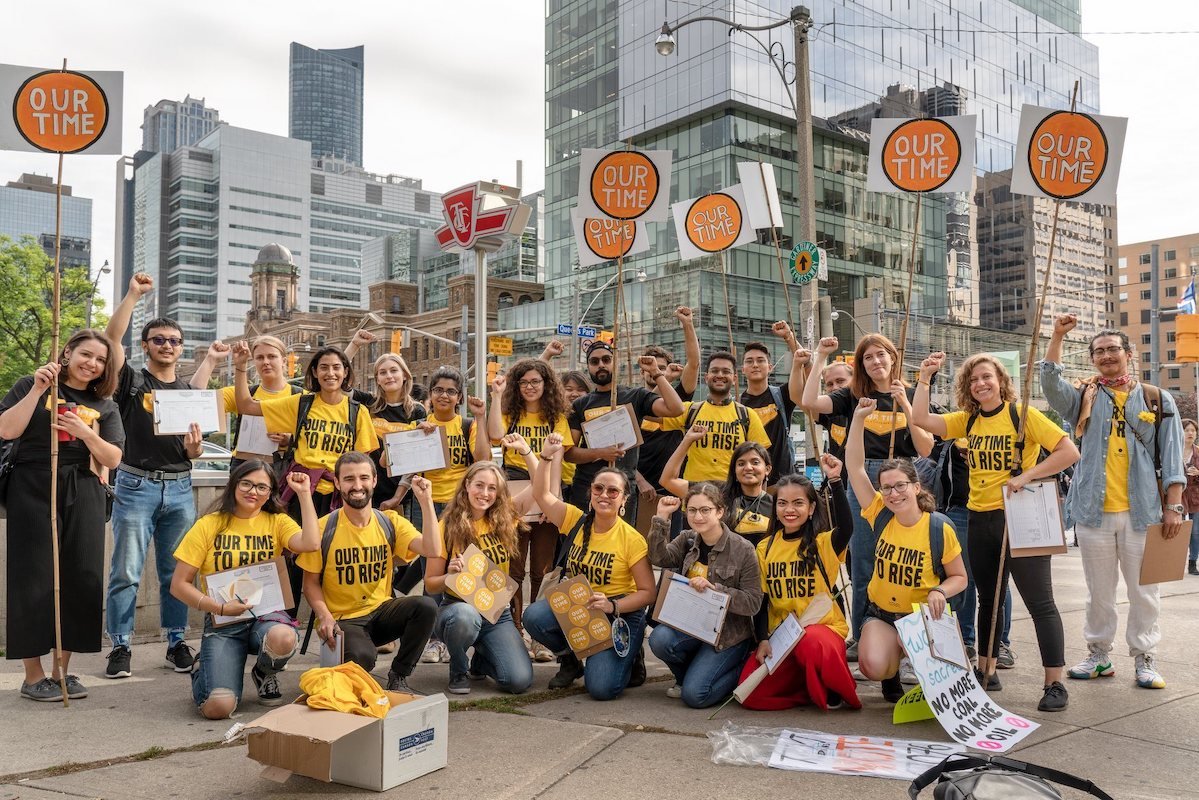
30 Oct Eight Questions with Niklas Agarwal
In 8 Questions, 8 80 Cities asks amazing partners we’ve worked with, or amazing people doing amazing work 8 questions about their passions, their history and their amazing-ness. And then we ask them to suggest a question for our next interviewee.
This week, 8 80 Cities Project Coordinator Candice Leung spoke to Niklas Agarwal. Niklas Agarwal has called Toronto home for 24 years. He holds a BA in Geography from the University of British Columbia where he studied ways we can make our cities and communities more sustainable without leaving anyone behind. After graduating he moved back to Toronto and helped start Climate Justice Toronto in May 2019. He has worked for various non-profits developing youth leadership programs that tackle urban and climate-related issues. We talked about the Climate Crisis, the role of cities, and community organizing with youth.
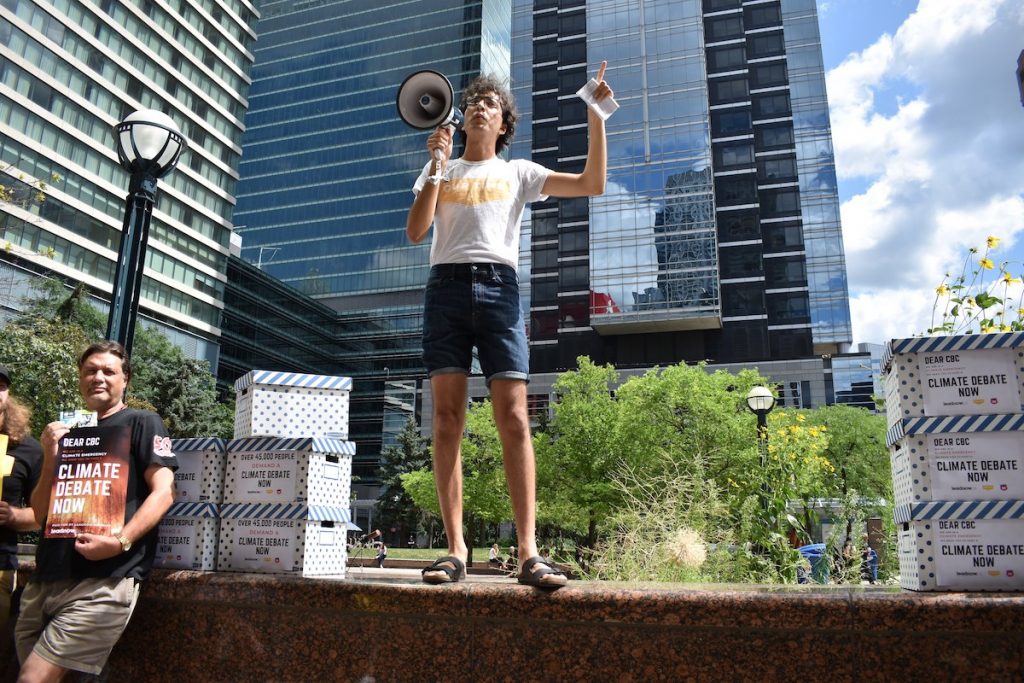
Photo credit: Alexis Fawn
8 80 Cities: What does an average day look like for someone, like yourself, who are immersed in the issues relating to the Climate Crisis?
Niklas Agarwal: The first thing I do each day is connecting with people from various campaigns and climate movements on Slack. I also use this time to look at the critical things to do and process major headlines.
After a full day, I make my way to some kind of community event. In the past four months, I’ve always had commitments in the evenings. Surprisingly, I don’t spend tons of time reading about the climate crisis. I know it’s real and I devote time and energy to connecting with others about actions.
Self-care is also important. The Climate Crisis is an urgent matter and it’s easy to fall into a cycle of overworking. What I do is delegating. It won’t take one person to save or protect our planet, so I rely on teamwork. I make time for my family, friends and playing with my little sister. Climate Justice TO also makes things fun! We celebrate new members, eat together and sing. It’s an uplifting culture.
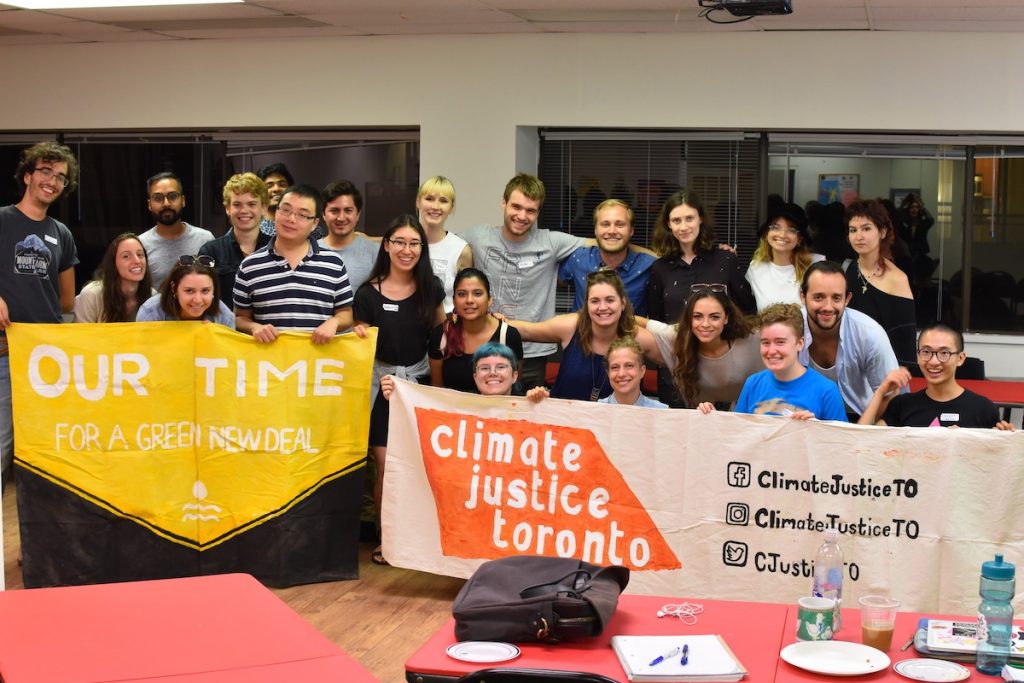
8 80 Cities: On September 27, 8 80 Cities attended Global Climate Strike in solidarity. Climate Justice TO led the coalition of organizations that made this demonstration happen. Can you talk about the significance of this strike?
Niklas Agarwal: First, I want to clarify that the Global Climate Strike in Toronto was very much a group effort and I played a small role. Climate Justice TO has two primary streams of focus: 1) on elections and campaigns, and 2) on alliances. The alliance stream is all about making climate activism intersectional by building relationships. They did much of the heavy lifting for the strike.
There were 7 demands that led the strike, but it was also about creating a whirlwind moment that puts climate change at the forefront of people’s minds.
We set records for the largest climate strike in the city. Reaching that degree of mass-mobilization is critical to the progress of this movement. Our membership grew by 2,000 people after the strike. It also propelled climate change in media and importantly – the federal election.
8 80 Cities: When we talk about the Climate Crisis – what role do urban centres play?
Niklas Agarwal: Most of our emissions stem from buildings and transportation from urban centres – so cities have a huge responsibility to address local issues that will, in turn, have a huge impact on the sustainability of our ecosystems. Some things cities should focus on are:
- Retrofitting buildings
- Creating denser cities
- Transitioning away from single-occupancy vehicles towards active transportation or mass transit
- Putting environmentalists in positions of power
Making cities more livable directly correlates to making them more eco-friendly.
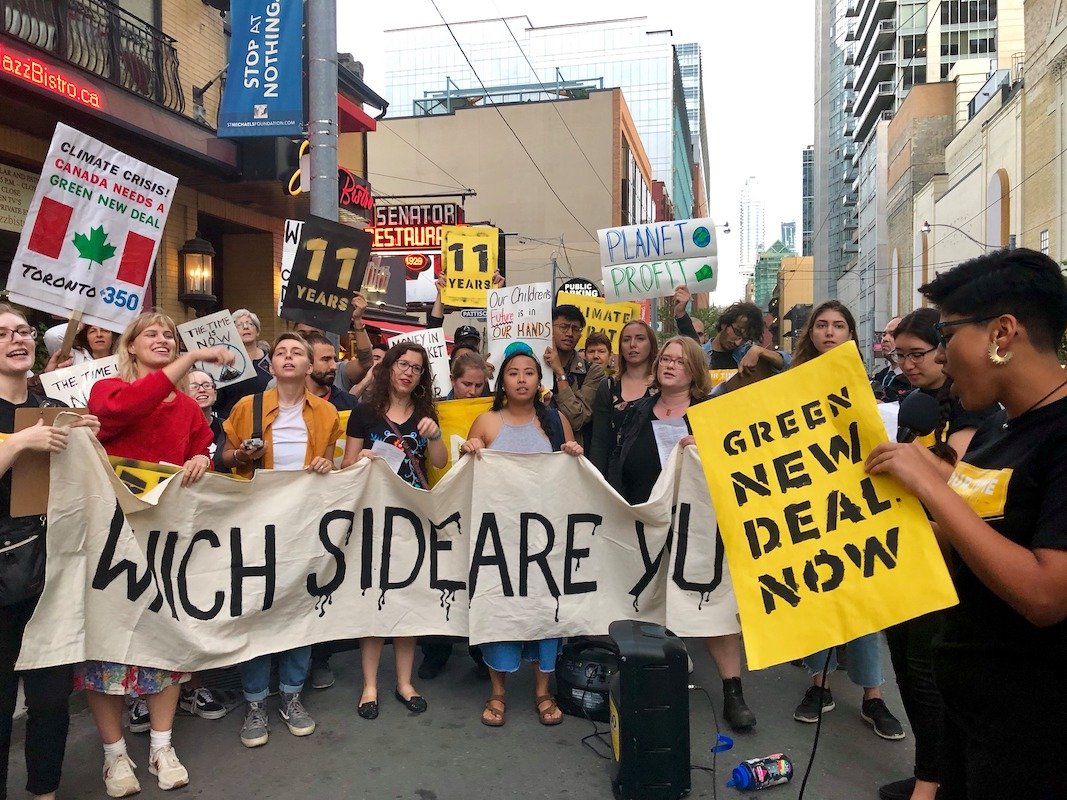
8 80 Cities: How will the Climate Crisis impact the future of our cities? What are some of the issues we will be faced with?
Niklas Agarwal: We’re seeing it already – flooding, heat waves, ice storms as well as aspects of climate barbarism – the idea that wealth and resources are being hoarded by the wealthy for when those resources become scarce. These will all be exacerbated as the Climate Crisis grows.
One major consequence of the Climate Crisis will be global displacement. Our cities have always been places of migration but today, our migration system is more and more restrictive and even hostile. We haven’t reached a state of mass climate migration – but we will – it will displace millions of people as communities become unlivable. As I’ve mentioned, cities contribute the largest to our global emissions therefor cities also play a huge role in taking in people that have been displaced by a crisis that they’ve largely contributed to. In fact, as cities grow to be more resilient – adopting the Green New Deal – there will be demands for growth in new jobs. Global displacement as an outcome of Climate Change is part of the harsh reality of the climate crisis but cities are in unique positions to welcome migrants into cities and grow resilient communities together.
8 80 Cities: Much of our work is centred through an intergenerational perspective. Can you speak to how climate change impacts people of all ages?
Niklas Agarwal: The effects of climate change will impact those most marginalized in our communities first. I think about the flooding we see on the Toronto Island, unbearable ice storms or the recent heatwave that hit Montreal. The majority of the fatalities from these incidents are seniors and children…
I want to focus specifically on younger people for a second. For a lot of us, not a day goes by that we don’t think of this crisis. It fundamentally is a risk to our future. We are the generational frontlines of this crisis and have a huge role in making this planet sustain.
Climate Justice TO started with just a couple of young climate leaders. We met at the 2019 Powershift Conference where we talked about youth engagement and our general frustration with the lack of intersectionality with other grassroots movements. I stayed connected with a handful of people and we are doing what we can to put Climate Justice at the forefront of the federal election. In addition to the Climate Crisis, youth are also deeply concerned about jobs or finding a sustainable field of work. Early in the development of Climate Justice TO, we connected with the local labour movement and began having a critical discussion on the ways that Climate Justice runs parallel to Labor Justice. Long story short, we made allies and grew our own contingency of young people to fight climate change.
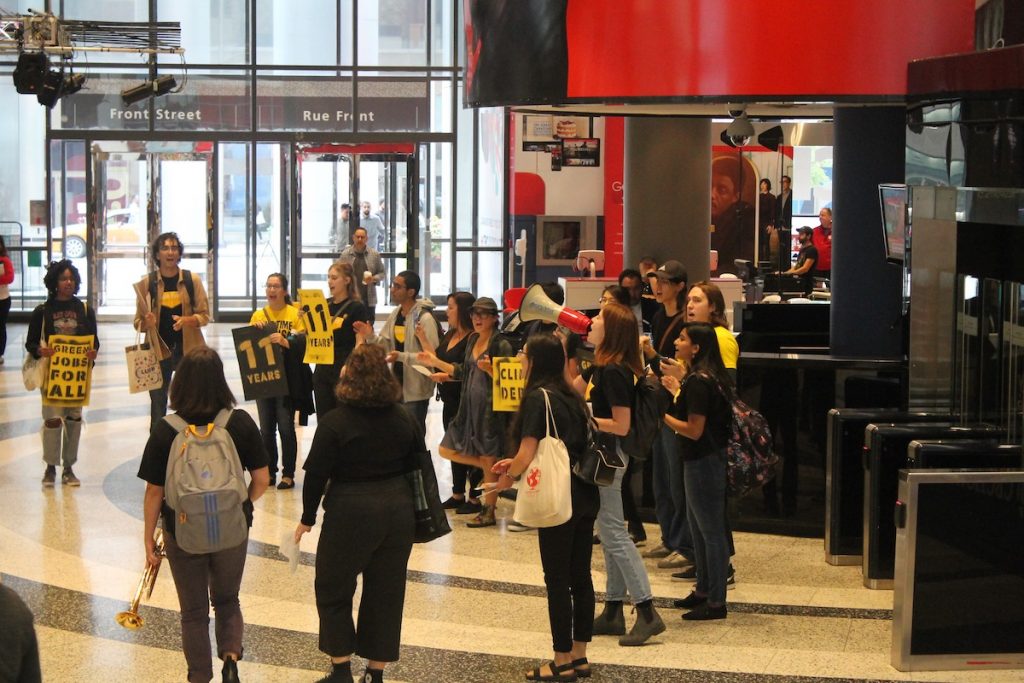 8 80 Cities: What is the hardest thing about communicating the complexity or urgency of the Climate Crisis?
8 80 Cities: What is the hardest thing about communicating the complexity or urgency of the Climate Crisis?
Niklas Agarwal: That this isn’t game over. There is still potential and it’s why I keep coming back to the movement.
I’ll also mention that I don’t really get hung up on climate deniers. I focus on youth voices and youth climate leadership. There are a lot of ways to get involved in the climate movement – it all starts with communication this issue and why it matters to you. Climate Justice TO was started by a couple of young leaders, we don’t have any fancy strategic plans for now – we take it day by day because we know that there is no time to be doing nothing.
8 80 Cities: Our last interviewee, Krista Nightengale – Managing Director of Better Block, asks what was the defining moment that led you to your career or the position you are in?
Niklas Agarwal: Well I remember learning about the environment in elementary school and its sparking interest, but, if I had to reference one moment, I would say the day that the Prime Minister of Canada approved the Trans Mountain Pipeline.
8 80 Cities: What question would you have for our next interviewee?
Niklas Agarwal: What would you say to someone who is just starting in your field? What’s one piece of advice you could pass along?



